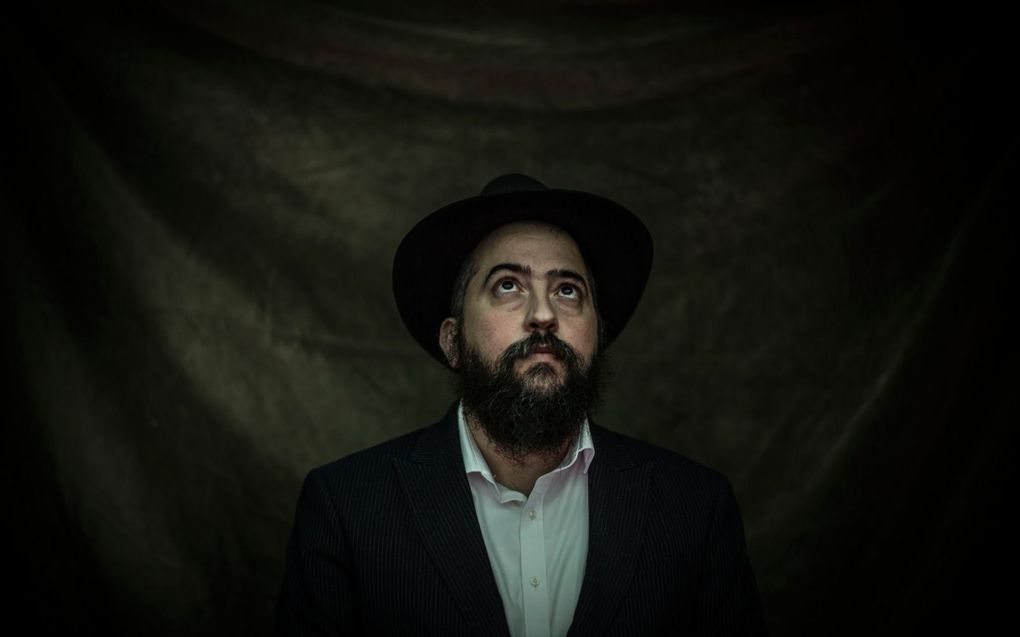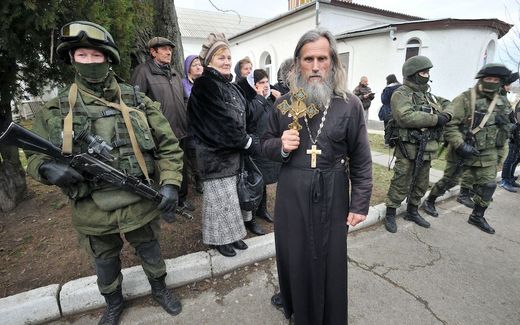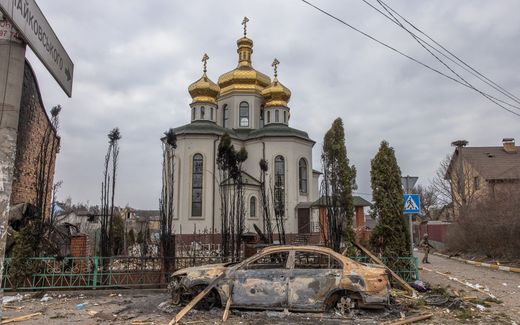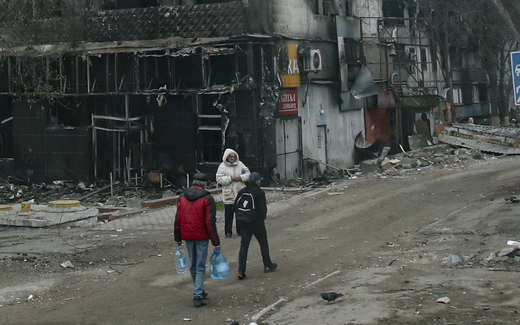Mariupol left only tears and pain
16-06-2022
Eastern Europe
Richard Donk, RD

Cohen. Photo Carel Schutte
Eastern Europe
His life's work is in ruins. Literally, with the destruction of Mariupol, almost the entire Jewish community of the city disappeared. Rabbi Menachem Mendel Cohen: "What remains are the tears and the pain.
He looks tired and rubs his eyes regularly. He is in the Netherlands for only two days. Mainly to speak with the Dutch Chief Rabbi Binyomin Jacobs. Especially about how they can help the Jews left behind in war-torn Ukraine.
It is the least he can do, says Cohen, who served the Jewish community of Mariupol for the past seventeen years. Because somewhere, a feeling of guilt still gnaws at him. When the Russian invasion of Ukraine started at the end of February, the rabbi was in Israel to undergo an operation. This was urgently needed after he had contracted an infection in his hip after recovering from a Covid infection.
"The operation was actually scheduled for May, but in December, it became clear that I would have to get the surgery sooner. I could hardly walk anymore; work had become almost impossible. Just before the war started, I went to Israel for the operation.
Did you not see the war coming?
"I denied that war would break out - and many with me. Although the Israeli Prime Minister Naftali Bennett and US President Joe Biden warned of it and many countries withdrew their embassy staff from the Ukrainian capital Kyiv. We thought it was exaggerated. Shortly before the war, we were still going by car from Mariupol to Rostov-on-Don in Russia."
And there was already a war going on in eastern Ukraine.
"That's right. Our house and the synagogue were about 10 kilometres from the front that had been active there since the capture of Crimea in 2014. So we knew what war meant. And yet we ignored the reality. And I think that was true for 95 per cent of the residents of Mariupol. Moreover: I am Israeli, so I was used to threats and war situations.
Despite the ongoing conflict in eastern Ukraine, Mariupol was in the reconstruction process after the devastation of eight years ago. Public transport had been reestablished; new parks had been built. A wind of optimism was blowing through the city."
Then war broke out on February 24th. What went through your mind?
"I was walking on crutches through Be'ersheva in the south of Israel when I heard the news about the 'special operation', as Putin still calls it. I blamed myself for being in Israel and not at my post. Especially when I saw fellow rabbis in Kiev, Cherson and other cities doing so much for their communities. My family and friends were happy that I was safe, but I did get questions about why I was not with my people."
What could you do for the Jewish community in Mariupol from a distance?
"In the beginning, we could still keep in touch via Zoom because all connections were intact. I took care of the morning prayers and Torah lessons, except on Shabbat and Jewish holidays because we are not allowed to use digital means then. In the beginning, the siren of the air alarm went off once per session. But gradually, it happened more and more often. Especially older people did not have enough time to escape to the shelter. After that, the situation deteriorated rapidly."
You nevertheless stayed in touch with the community. What kind of stories did you hear?
"Stories of devastation, suffering and a lot of pain. In just a few weeks, all our dreams were crushed. Of course, this affected not only the Jews but all the inhabitants. Everything was gone, vanished. Within a few weeks, the city was one big disaster area, and a massive humanitarian catastrophe developed. There was not enough food, water or fuel. Shops had been bombed or looted. I don't blame anyone for the latter. Because what can you do if you have to survive?

Pretty soon, people were trying to get out of the city. There was much uncertainty about whether the Russians had set up so-called humanitarian corridors or not. When people wanted to use the escape routes, cars and buses were fired upon. The longer they waited, the more precarious the situation became. The war was on every street corner. Civilians were used as human shields. Both sides accused each other of the most terrible misdeeds.
The people who were able to flee often had no more than the clothes they wore, which they then had to wear for weeks. But at least they could get away. Hundreds were killed. Some were buried; others were dumped in a mass grave. Of many, we will never know where their bodies went."
What do you remember most about that period of the siege of Mariupol?
"The uncertainty, especially because we could not get in touch and did not know how people were doing. It was like walking in the cemetery and talking to the graves. Never an answer. It seemed to take an eternity."
What did you do during that period?
"I went back to Ukraine several times but obviously could not reach Mariupol. I mainly helped to accompany Jews who fled the country and helped them to go to Israel. Especially through Moldova.
What has become of the Jewish community in Mariupol?
"People died because of the war. Most of the other members have left for Israel by now. We estimate that some fifty to one hundred Jewish families have remained in Mariupol. Some of them are elderly people who find it difficult to leave. But also people who don't want to, because they are stuck in that place for various reasons."
What about your own plans?
"One thing is certain: Mariupol will never be the same again; we can't go back for the time being. We also need to come to ourselves as a family. I am very busy helping Ukrainian Jews in Israel build a new existence. Ranging from helping them find a language school to making an appointment with the doctor. In recent months I have hardly spoken to my children; the phone was ringing day and night."
This article was translated by CNE.news and previously published in Dutch daily Reformatorisch Dagblad on June 15th, 2022.
Related Articles





